ACT Student Inclusive Support Equality, Diversity, Inclusion and Social Justice

At ACT, we can provide that sense of belonging as our mentors are committed to equality, diversity and social justice. Our targeted support means that the specialist mental health support we provide is tailored to address the needs of the student and celebrate their individual identity. We also have mental health mentors for individuals who are neurodiverse, with conditions such as ADHD, ASD and learning differences.
We believe that education should be inclusive and one way to achieve that is through providing holistic support; this is where ACT can help. Our mental health mentors can help with other things such as motivation, planning, study, having a work/life balance, emotional regulation etc. We hope this will help develop the most appropriate studying strategies for you.
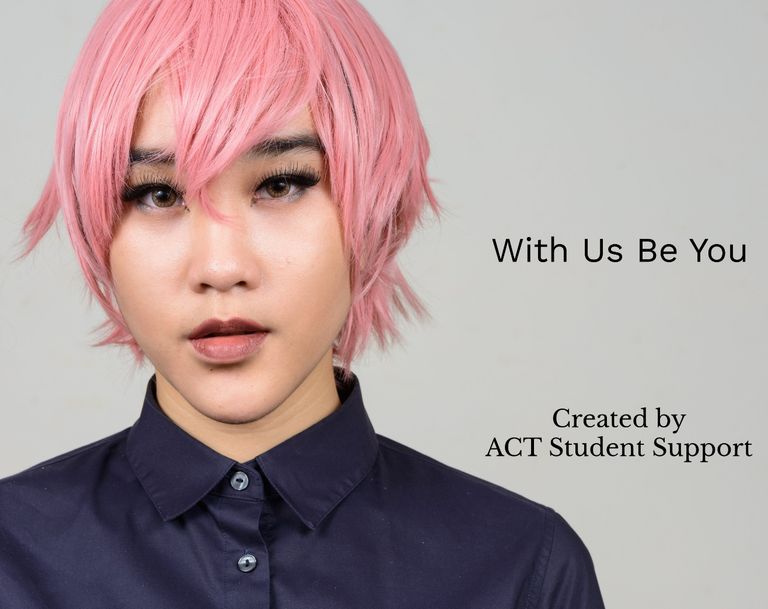
LGBTQI+
We really value our LGBTQI+ students, for your experiences and your wealth of knowledge before adulthood has yet to really start. At times prejudice and discrimination can hinder our mental health needs. We hope to support and encourage you throughout your journey, achieving your your goals and living your best valued life.
To our older LGBTQI+ students who come to us with many years of wisdom, we hope to support you the best we can. We understand that you may of been faced with common discrimination. We hope your University journey can be a new beginning and we hope to learn as much from you as you learn from us.
Symptoms of mental health can variety widely, but if you reach out to us we will listen and support you the best way we can. It is never to late to access support.
We sponsor G an organisation helping individuals with gender, sexuality and relationship Diversity www.GSRD.co.uk
Physical disability
Even though many places are trying to give greater accessibility to individuals who have physical disabilities we have still developed and grown much of our infrastructure around ability (as many of our students tell us). We feel that individuals who have a physical disability should still have the choices and flexibility as able-bodied people.
We feel all individuals have to undertake 'mental health upkeep', even if you class yourself as having a physical disability over a mental one. You may still have to do things to keep yourself mentally well. University may raise mental health challenges for the first time; keeping yourself mentally well could be in the form of socialisation, taking time to relax, stopping alcohol, seeking support or having sessions with us.
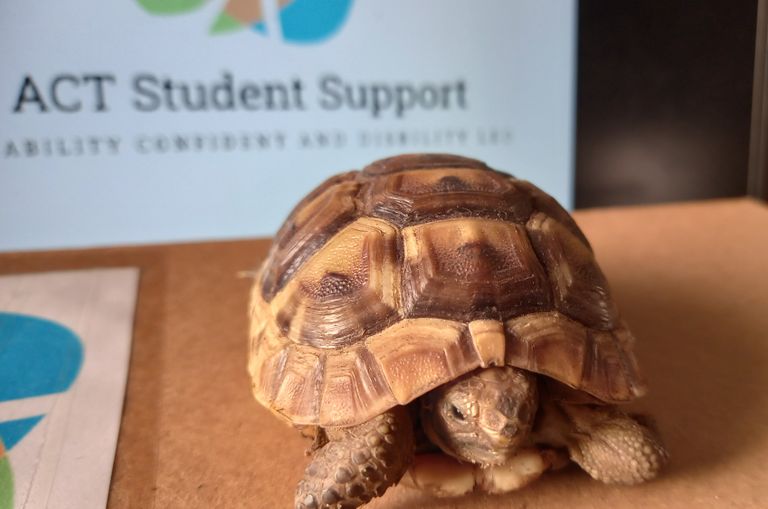
Climate Change
We are believers that climate change is here, its real and it is impacting people in Wales and across the UK. In April 2019, Wales declared a climate emergency, this declaration stated about the grey literature on direct impacts such as the environment, mental wellbeing and health care. We as a company have looked at the inequalities that people suffer due to climate change. The Health Impact Assessment (HIA) completed by the Welsh Government identified a range of positive and negative impacts on specific population groups which highlights their vulnerability to climate change. This includes children and young people; older people; coastal and rural communities and those on low incomes. We have looked at the impact climate will have on students. Many Universities across South Wales are close to the coast, students are usually affected by low income and debt. This is a topic our students are concerned about and want to talk about. Going carbon neutral in Wales is something that we value and take into consideration at every point in our business.

ADHD/ADD
If you like others find you are trying to Navigate higher education whilst distracted by shiny things, you are not alone!
ADHD starts in childhood and progresses into adulthood, according to research 60% of children who develop ADHD do not outgrow or correct it. It has become apparent that many people were not diagnosed with ADHD during childhood; meaning that we receive a high percentage of students at university who are newly diagnosed.
We can help you work through your diagnoses and start interoperating ADHD into your life. Some of the thing we can work on with you;
- Practical advice about sitting exams or writing essays with ADHD.
- Distinctions between ADHD and Anxiety
- Meditation and mindfulness with ADHD
- Self-Care
- Managing emotions, behavior's and mindset
Yet we will tailor your support to meet your individual learning needs.
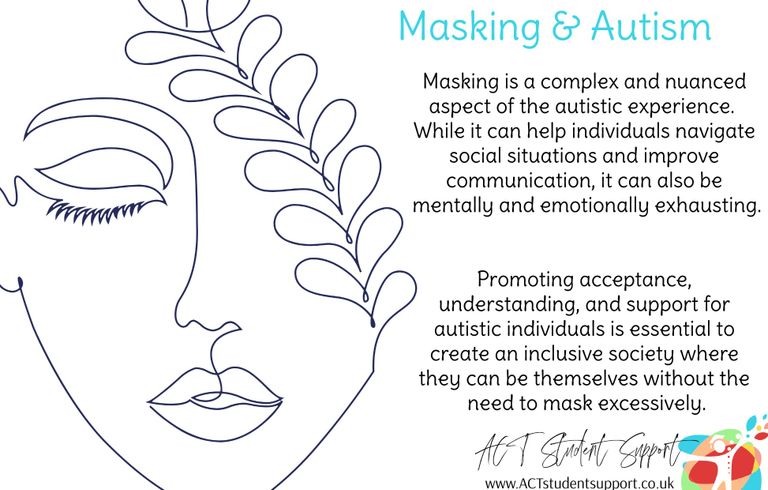
Autism in Women, Girls and Non-Binary People
Currently at ACT we have more women, girls and non-binary coming through the cracks of the stereotype that is classically 'male autism'. With changes to outdated assessments finally women and girls are 'unmasking' and getting the help they have always needed. Even though research and professional practice is catching up for women and girls, the reality is that diagnoses and support remains outdated. At ACT we will:
Support you with your educational journey alongside Autism
Help you with other conditions that you may have with Autism
Explore 'masking' and 'unmasking'
We will look at the stereotypical and any incorrect assumptions you may have experienced in the past; and helping you process
Your struggle to diagnosis
Dealing with Stress and anxiety
Getting you through parts of education maybe overwhelming
Friends and social situations
Interests and behavior's
Social differences
Understand uniquely you
Supporting you through late diagnosis
Challenging gender stereotypes
Unfitting back in (why should you change when society can!)
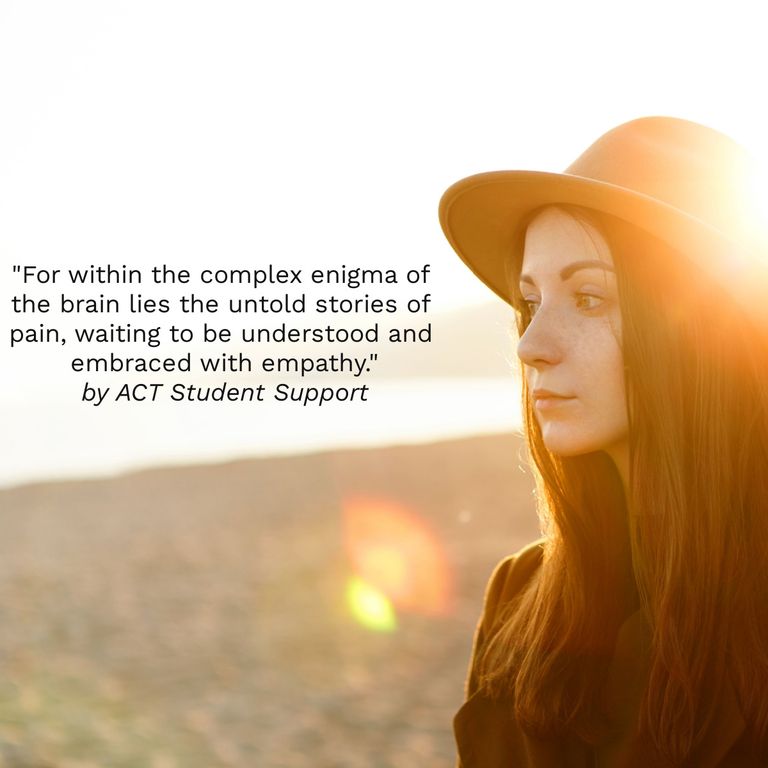
Remote Support
Rest assured, our remote support services are designed to deliver the same high-quality care and attention that you would expect from in-person support, without compromise. We understand that the modern world demands flexibility, and our commitment to your well-being remains unwavering, whether you access our support remotely or in person. Your mental health matters to us, and we're here to provide consistent, compassionate assistance no matter where you are.

Postgraduate students
An exciting but daunting level of study. Enthusiastic about their research topic, keen to develop new knowledge but at a cost to be self-taught and feeling isolated.
What universities do not need is mental health responsibilities past onto supervision sessions. With ACT supervisors can keep their professional boundaries without feeling concerned about their student welfare. Supervisor sessions can be spent purely on academic work whilst we take care of the students mental health and well-being.
Contact us today to allocate mental health hours to one of your researchers/PhD students we will make contact with the student within 24 hours.

BIPOC/BAME
July is BIPOC mental health awareness month, the first week in July our social forum topic will be 'BIPOC mental health'. It will be hosted by Dr Ruth Smith Author of 'The Good White Counsellor'.
Ruth has also completed extensive trauma work with refugees and asylum seekers. Again we do not believe there should be any barriers to education and we hope that individuals in the UK who are refugees/asylum seekers will have access to education and mental health support so they can live as 'normal' of a life as possible, and are able to achieve their values and goals in life at the UK. If completing University is their goal we are there to support them.

Women, female identity and girls
Each year, International Women's Day (8 March) provides an opportunity to recognise women’s achievements and to reflect on the many challenges still being faced.
We want to ensure that every experience as a woman is recognised. We are here to support you with the good, the bad and the ugly of University.
Gender equity is about appreciating that everyone brings something different to the table, based on their own life experiences. It’s also important to remember that people have different relationships with gender; people who are non-binary and transgender need to be included in the conversation about gender equity too.

Care Leavers
A care leaver is a person over the age of 18 who has at some point in their childhood spent time in care. This care could be under the local authority, foster care, court ordered or voluntary, care with a family member, residential care, secure units, approved schools, industrial schools; for a few months or their whole childhood.
We have always focused on the experience of being in care and the long-term impact this has. In terms of higher education their is lots of support for care leavers including finance, accommodation, and settling in. We offer mental health support.
Young Carers
We understand how being a young carer may affect a young persons schooling and education. We want you to be healthy, happy and focused on the future. We know caring for someone can be difficult but you need to make time for yourself as well. It's difficult juggling work and study whilst caring for someone. There is support out there to help and we want to make sure you know what you are entitled to.
If you have ever experienced mental ill health such as anxiety and depression you could be entitled to a mental health mentor through disabled students allowance. We can help you with your mental health and the affects of being a young carer during your university journey.
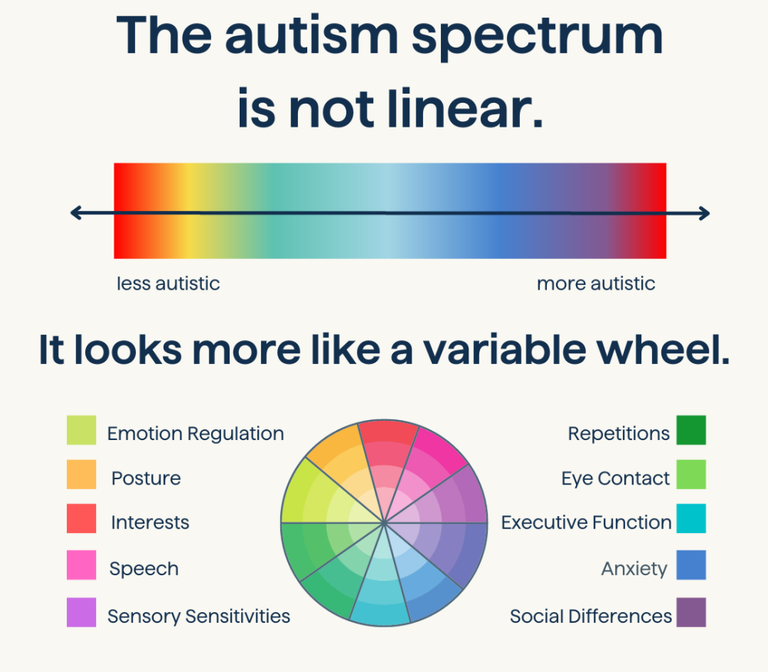
Autistic spectrum
Not all of disabled students will have formal diagnoses and some might not even realise they are on the autistic spectrum. We find that some of our student ‘have a feeling’ or they find that once they have been given the label of ‘autistic’ that it “explains a lot” about themselves and how they process life. At ACT we are used to the formal and emotional process that students take to get a diagnosis of Autism. We have supported many of our students, some who may not yet have a diagnosis and others who are just starting the process, we have insight and knowledge on the best paths students might take and we can also aid you emotionally on your journey.
Six National Autistic Society (NAS) online training modules:
Understanding autism
Autism and communication
Autism and sensory experience
Autism, stress and anxiety
Autism: supporting families
Autism and Girls
All our mentors have completed six modules with the NAS. We advise anyone wanting to learn more about Autism to take the variety of modules they have available.

Disadvantaged backgrounds and poverty
With raising university costs (currently at £9,000 a year) there are very few students who can say their lives have never been effected by economics or budgeting. Moving from College/6th form to university, can feel like a very big financial change.
Individuals from disadvantaged and low income families are more likely to having mental health problems. People from low socio-economic backgrounds are more likely to feel anxious and unconfident about the large finical burden University creates.
We want you to choose ACT because of the diversity of our mentors. We have members of our team who have had to live in poverty and more importantly doing education while in poverty.
It is clear from research that if students from deprived backgrounds feel powerless as learners, they will continue to have disappointing educational relationships. Therefore the transformation of educational relationships inside and outside the classroom will be just as important to educational achievement.
